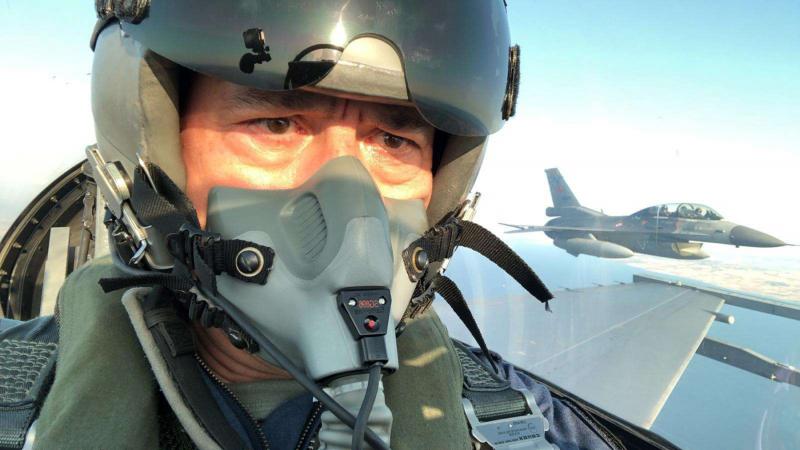Turkey’s escalation vis à vis European nations is seen as reflecting a confrontationist attitude on the part of its army that may result soon in a military showdown in the East Med region.
This is all the more so that Europeans, especially France and Greece, are intransigent in rejecting Turkey’s illegal moves aimed at exploiting the oil and natural gas riches of the Eastern Mediterranean at the expense of the rest of the countries of the region, especially Greece.
The Turkish military air exercises over the island of Gallipoli carried threatening messages to the Europeans and a reminder of the famous Battle of Gallipoli during the First World War, where the coalition forces (Britain, Australia, New Zealand, and France) suffered a resounding defeat and failed to invade Istanbul, the capital of the Ottoman Empire at the time, which was a key gate for the Europeans to reach the north-eastern part of the Ottoman Empire in support for Russia against the German forces.
The Turks have a particular sensitivity towards any Greek-French alliance. Between 1919 and 1922, such an alliance was able to take control of large areas of Turkey and even reach the gates of Ankara, which prompted Turkish leader Kemal Ataturk to launch a war against it after having mobilised for his cause the whole Turkish population.
In 1922, the Turkish army launched a campaign of ethnic cleansing that led to the burning of large sections of Christian neighbourhoods in the city of Izmir, and one of the results of this campaign was the establishment of modern Turkey.
Turkish Defence Minister Hulusi Akar released a defiant photo of himself sitting inside an F-16 fighter jet at a military air base in Eskisehir, in western Turkey, during a training flight over the Gallipoli peninsula.
Akar’s photo reinforces the argument claiming that the hard-line military leaders in Turkey are the ones who are directing President Recep Tayyip Erdogan more than he is directing them, especially since the secularists among them were pushed aside for being suspected of involvement in the failed July 2016 attempted coup.
“Erdogan was part of the alliance with retired extremist and anti-Western military officers,” said Turkish political writer Ilhan Tanir. “These are the same officers who were defending expansionist policies in the Aegean, Mediterranean and other seas, and promoting the maritime agreement with Libya. This relationship is mutually beneficial, since Erdogan receives approval for his policies in Libya and the retired military officers get recognition, influence and celebrity.”
Tanir told The Arab Weekly that since the 2016 attempted coup, “Erdogan has been able to suppress opposition in the media, the army and the state, and when the former Chief of Staff Hulusi Akar became Minister of Defence, Erdogan gained greater control of the army. Thus, Erdogan has not adopted the basics of checks and balances in the civilian or military ranks.”

Henri J. Barkey, professor of international relations at Lehigh University in the United States, expects the confrontation in the Mediterranean Sea to escalate if the Turks, who have significant naval and army forces in the region, remain adamant on their ambitions regarding the riches of the eastern Mediterranean.
Barkey, who serves as assistant senior researcher for Middle East studies at the US Council on Foreign Relations, did not rule out that Erdogan’s defiant discourse aims to try to push the other parties in the Mediterranean to include Turkey in the negotiations about sharing the area’s resources, which is rather unlikely to happen given that international law is on Greece’s side.
On Thursday, French President Emmanuel Macron said that the seven Mediterranean countries want a “dialogue in good faith” with Turkey, which is leading an expansionist policy in the Mediterranean. He referred to “the desire to initiate a responsible dialogue and find a balance (…) without any naivety and in good faith.”
The international opposition to Ankara’s projects in the Mediterranean has picked up momentum, with Washington lifting its arms embargo on Cyprus and Greece negotiating the purchase of combat aircraft from France.
On Thursday, Hulusi Akar said that Washington’s lifting of the arms embargo on Greek Cypriot-administered Cyprus would lead to a dead end.
“If you lift the embargo and try to disturb the balance in this way, it will bring about conflict, not peace,” he added in a veiled threat of war.
US Secretary of State Mike Pompeo said that his country had lifted restrictions imposed on the sale of non-lethal defence equipment and services to the Republic of Cyprus for the next fiscal year, which angered Turkey. Previously, Greek Finance Minister Christos Staikouras confirmed that his country is ready to spend part of its cash reserves to buy weapons and other means that will help it increase its “deterrent power”, following years of cuts in defence spending.
In mid-August, France sent two Rafale fighters and a support plane to be stationed at the Andreas Papandreou Air Base in the Paphos region of Cyprus, within the framework of a recently activated military agreement between France and Cyprus. The French move was a warning message intended for Ankara.
Observers believe that the epicentre of the crisis has now completely shifted from Libya to the maritime zone opposite Cyprus, which confirms that Libya was just a side show for Turkey.
Via- The Arab Weekly
Statements, comments or opinions published in Warsan magazine are of those of the author(s) and do not necessarily reflect the editorial policy of Warsan magazine. Warsan reserves the right to moderate, publish or delete a post without prior consultation with the author(s). To publish your article or your advertisement contact our editorial team at: warsan54@gmail.com or tips@thewarsan.com

